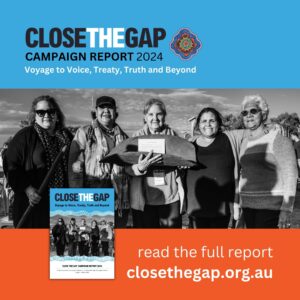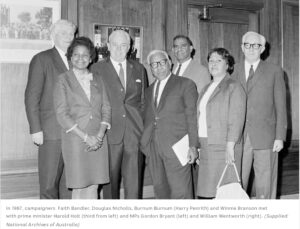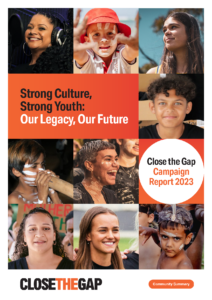Today, on the sixteenth anniversary of the National Apology to the Stolen Generations, the Albanese Government released the 2023 Report on Closing the Gap and the 2024 Closing the Gap Implementation Plan.
We welcome the new funding announcements and allocations in recognition that more needs to be done to meet the aspirations and wellbeing of Aboriginal and Torres Strait Islander communities. However, funding is merely one component of the vast policy space that is “closing the gap”.
To close the gap there needs to be a fundamental shift in the way that governments work with Aboriginal and Torres Strait Islander peoples. The Closing the Gap Strategy – and its previous iterations – have been in place for fifteen years and yet, there has been little to no improvements, nor gains, across important indicators of health and socio-economic outcomes.
Where improvements have been made, most are small, while others are lagging. Further problematic is the confirmation from available data that significant changes will not likely occur across the socio-economic targets within the timeframes outlined in the National Agreement.
As Close the Gap Co-Chair, Karl Briscoe, states “for many years, at the social and political level, there has been an immense amount of goodwill and genuine desire to see improved life outcomes for Aboriginal and Torres Strait Islander peoples; but simply put, good intentions aren’t enough. There remains, a large and in some cases widening gap between the health and life outcomes of Aboriginal and Torres Strait Islander peoples and non-Indigenous Australians”.
The Prime Minister is right, the gap in health equity, equality, and improved life outcomes for Aboriginal and Torres Strait Islander peoples “diminishes us as a nation”; but more than that, it is Aboriginal and Torres Strait Islander peoples who bear the brunt of the government’s inability to make meaningful progress across the target areas.
“Governments have yet to fully grasp what is required if we are to turn the tide against stagnating or worsening statistics. The work of governments must first and foremost be to address this conceptual deficit and position themselves to be genuine partners for our people. Nothing short of this will deliver the results we seek” says Social Justice Commissioner, June Oscar.
The National Agreement on Closing the Gap is a vision for a future that is far better than the reality Aboriginal and Torres Strait Islander people currently experience. As noted by the Productivity Commission it “can and should be a blueprint for real reform, but governments will need to move beyond business as usual and address the entrenched attitudes, assumptions and ways of working that are preventing progress”. The new announcements, in particular, the dedicated role of a National Commissioner for Aboriginal and Torres Strait Islander Children and Young People go some way to rectify this, but it remains to be seen if real changes are on the horizon.
Close the Gap Campaign Co-Chairs
Karl Briscoe – Chief Executive Officer – NAATSIHWP
June Oscar AO – Aboriginal and Torres Strait Islander Social Justice Commissioner – AHRC




